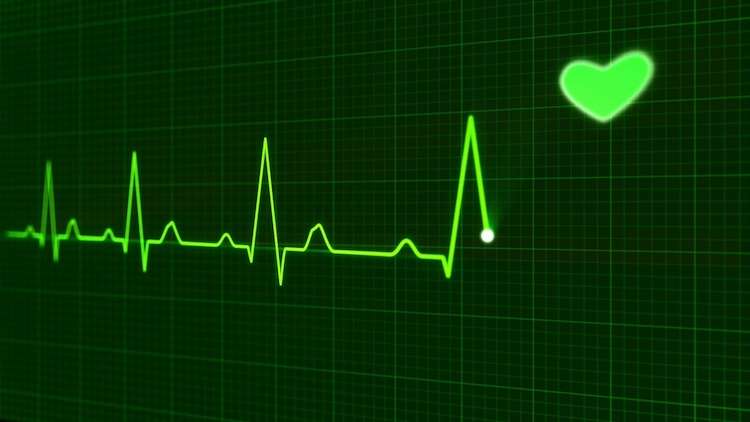Sweet Enzyme Discovered Can Actually Break Down Harmful Effects of Sugar
A newly discovered enzyme helps cells "kick out" excess sugar, promising therapies for treating diabetes and obesity.

Sudden cardiac arrest may not be so sudden after all. Doctors have discovered that early warning signs may be experienced up to a month before the condition hits–and knowing them could save hundreds of thousands of lives.
Sudden cardiac arrest (SCA) is worse than a regular heart attack. The electrical rhythm of the heart goes out of sync and the heart stops beating. CPR can buy time, but even if someone performs CPR on you, survival rates are low.
OPTIMISM CUTS RISK OF HEART ATTACK: GET OUR NEW APP—> Download FREE for Android and iOS
But there is a window of opportunity that doctors didn't know existed.
Because of the low survival rate, doctors previously assumed the condition struck without warning, but a new, decade-long study shows there are hints as early as a month before that something is wrong.
"By the time the 911 call is made, it's much too late for at least 90 percent of people," Dr. Sumeet Chugh of the Cedars-Sinai Heart Institute in Los Angeles, California and lead researcher, said in the Annals of Internal Medicine. But the findings suggest SCA could be prevented on a large scale if doctors could treat those people with warning signs.
The study tracked 1,100 cases in Portland, Oregon between 2002 and 2012 involving people between the ages 35 to 65 who suffered a SCA.
Researchers interviewed witnesses, family members and friends of patients about their collapse and the patients' conditions in the weeks before cardiac arrest.
They found in 839 of the cases, there was at least one warning sign in the month prior to the SCA — though most were within 24 hours before it happened.
If people are aware of the warning signs–and act on them by seeking immediate medical attention–lives can be saved. The symptoms include:
Of the 1,100 subjects, only 209 — about 19% — sought help because of any of these symptoms. Their survival rate was 32% compared to just 6% for other patients — usually because they were already in an ambulance or hospital when they suffered SCA.
The researchers published their findings in January in the Annals of Internal Medicine.
(WATCH the video below from CBS News) – Photo: Public Domain Pictures
SHARE With Your Loved Ones…
Be the first to comment